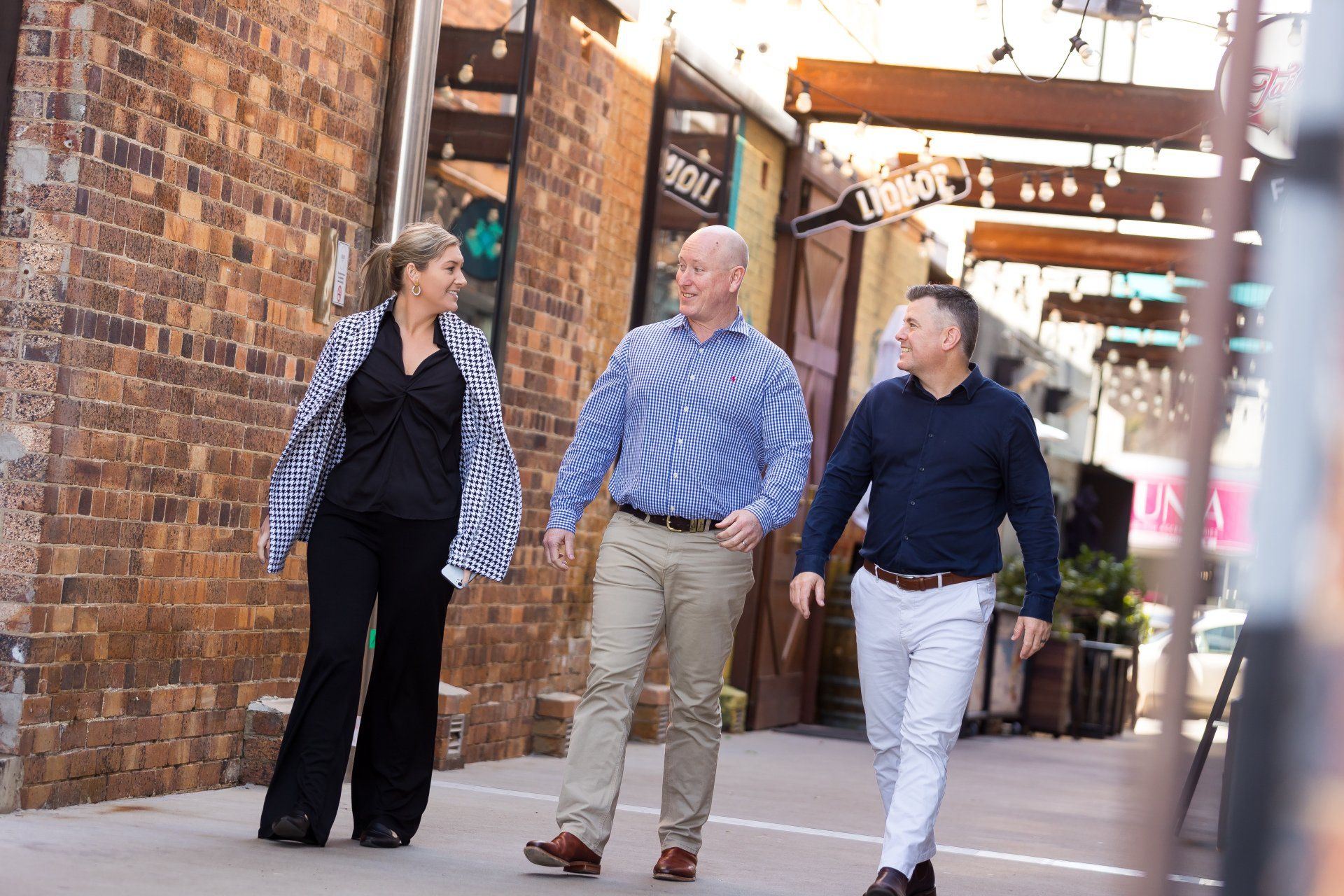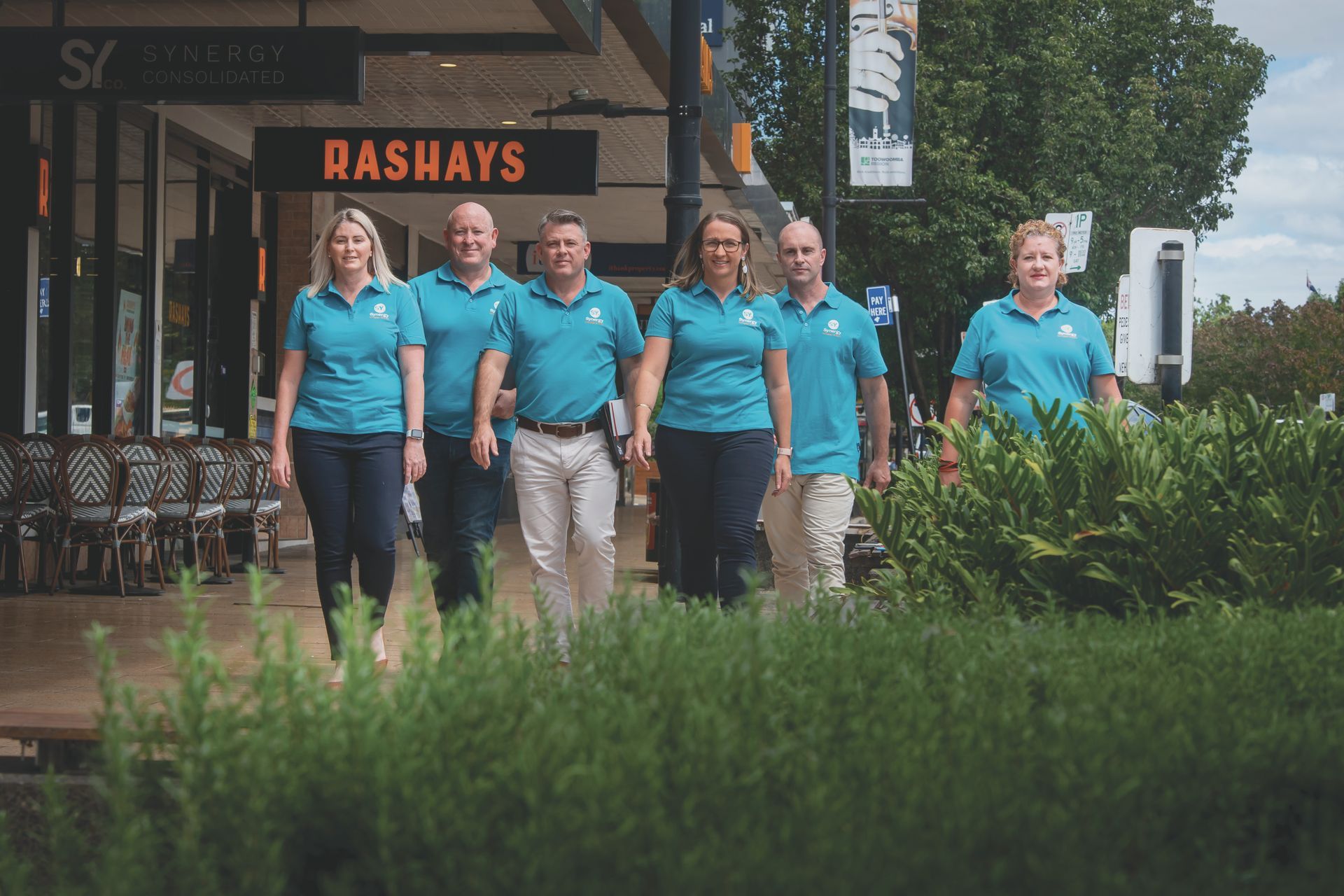LATEST INSIGHTS
Thinking about stepping into the world of commercial property? You’re not alone! Many Aussies are looking to this investment avenue for passive income and some solid returns over time. But before you get into it, getting a grip on the basics is important. Let’s unpack what commercial property investment is all about.

Why Should You Invest in Commercial Property?
Commercial properties can be a goldmine for those looking for higher cash flow than residential real estate; here’s why it might be worth your while:
- Higher Yields: The commercial market in Australia has tightened recently, leading to yield compression. Simply put, your potential for capital growth is on the up.
- Long Leases: Many commercial properties come with leases that last three, five, or even more than ten years. This gives you the chance to lock in annual rental increases, which is a great way to boost your income.
- Reliable Tenants: Commercial tenants often have more at stake than residential ones (they have a reputation to uphold and maintain), which means they’re usually more dependable when it comes to paying rent and handling outgoings than residential tenants.
- Fast-Track Your Cash Flow: With some commercial loans, you might pay them off in as little as ten years. After that, the income flows straight into your pocket—pretty sweet!
Commercial Property Investments 101
So, what exactly is a commercial property investment? Luckily, It’s pretty straightforward. A commercial property is any real estate primarily used for business purposes to generate profit. This could be an office, a retail shop, or an industrial warehouse (and there are even more specialised options like medical centres and hotels).
Commercial Properties: 4 Different Types
Commercial properties generally fall into four main categories. Each one has its own risks and rewards, and it’s a good idea to get familiar with them before investing.
1. Office Space
Office spaces range from tall towers in the CBD to smaller offices in the suburbs. When considering an office investment, pay attention to:
- Location: Is it near food outlets, similar businesses, and public transport? These amenities can attract quality tenants.
- Workplace Trends: For example, flexible workspaces have gained popularity, so consider how your property fits into this trend.
- Well-Kept: Tenants have to finance any repairs themselves, which is why it's a good idea to save on this as much as you can.
2. Industrial Property
Industrial properties can be small warehouses or massive distribution centres. Key considerations include:
- Access to Transport: Good road networks and proximity to ports are essential for logistics and distribution.
- Flexibility: Industrial spaces that can adapt to different uses or expand in the future are often more appealing.
- Well-Kept: Again, this space should be well-maintained and preferably already have a kitchen, office area, and bathrooms.
- Loading Zone: It is a bonus if this area already has an external loading bay that can accommodate heavy vehicles with suitable height limits.
3. Retail Property
Retail properties can be anything from an entire mall to a small restaurant space. Factors that influence retail investments should include:
- Consumer Confidence: People who feel good about the economy are more likely to spend money, so try to get as close to spaces that already attract individuals with disposable incomes.
- Tenant Quality: Strong anchor tenants can draw customers and keep vacancy rates low.
- Potential for Growth: It is a good idea to invest in a retail property with a high potential for growth (for example, a high-population growth location).
4. Speciality Property
Specialty properties could be anything from educational institutions to churches. When looking at these investments, think about:
- Market Saturation: If there are too many similar properties in the area, your investment could face stiff competition.
- Tenant Stability: A solid lease with a reliable tenant is crucial for long-term success.
The Secret Sauce to Investing in Commercial Property
While we discussed the different types of commercial property investment, we listed some factors to keep in mind when making your decision. Below, you'll find a handy checklist to do just that.
Location
Location is everything in commercial property; it can truly make or break your investment. Depending on the type of commercial investment, you’ll need to evaluate different location criteria.
Building Condition
Look for modern buildings with well-maintained exteriors and interiors. This can save you on repair costs down the line, as tenants usually handle upkeep in commercial leases.
Vacancy Rates
Vacancy rates can tell you a lot about an area’s health. High vacancy rates may indicate trouble attracting new tenants. But don’t forget that some commercial properties can still be valuable even when they’re vacant—many businesses choose to buy the properties they operate from.
Tenants
The strength of your lease is often tied to the quality of your tenants. Look for businesses with a history of long-term leasing—this usually indicates a strong performance. For example, a dentist or a beauty salon is less likely to move if they’ve built a loyal customer base.
Adding Value to Your Commercial Investment
- Buy Under Market Value: If you can snag a property below its market value, you’ve instantly increased your investment’s worth.
- Maximise Space: Some tenants might create additional space by building mezzanines or partitions. Utilising the property space efficiently , could improve your property’s value.
- Strengthen Amenities: Adding storage or parking spaces will most likely be desirable for tenants and can lead to longer leases and higher rental returns.
- Rental Increases: Most commercial contracts include fixed annual rent increases, typically around 3-4%, which can boost cash flow over time.
- Lengthen Leases: A longer lease can improve security and increase your property’s value, making it more attractive to future investors.
Investing in Commercial Property in Australia
So, how do you get started with commercial property investing in Australia? For starters, partnering with a business finance manager and accountant can be a game-changer. Below is a step-by-step guide to help you on your journey.
Looking for a professional to help you find the right loan or lease while negotiating optimal terms and conditions? Look no further. At Synergy Business Finance, we focus on a long-term, strategic approach while working across both the accounting and finance outcomes.
1. Do Your Homework
If you have a buyer’s agent, they will research potential tenants and their business histories. How long have they been in business? Have they been consistent with rent payments? Remember, in commercial property, your tenant is everything.
2. Understand the Types of Investments
A good business finance manager will help you understand the different types of commercial properties and the associated risks and benefits. Each asset class fits into a broader market cycle, so it’s important to grasp where your investment stands.
3. Know Your Locations
Your business finance manager should have a solid grasp of the market values in your desired areas, including rental prices and upcoming infrastructure projects, in order to make an informed decision.
4. Source Properties
Experienced business finance managers often have access to a vast network and can uncover off-market properties. These hidden gems can mean less competition for you.
5. Navigate the Sales Process
Your business finance manager will guide you through the sales process, helping with financing options and negotiating contract terms - Having an expert like us in your corner will save you time and headaches.
6. Long-Term Support
Even after the sale, a good business finance manager will continue to support you, ensuring you maximise your cash flow over the long haul.
- Sooner Passive Income: High-quality commercial properties can pay themselves off in about ten years. Once that debt is cleared, the cash flow goes directly to you.
- Higher Rental Income: Commercial properties typically offer higher yields than residential properties.
- Flexible Lease Terms: With commercial contracts, you can negotiate terms that work for you, leading to better deals; a business finance manager can help you make the most of this.
- Tenant Pays Outgoings: Unlike residential properties, where landlords often shoulder costs like water rates and maintenance, most commercial tenants cover these expenses.
- Longer Leases: Commercial lease terms can range from three years to as long as fifteen, providing stability and predictability.
- Quality Tenants: Business tenants have a vested interest in the property, which usually means they’ll take better care of it and are more likely to pay rent on time.
- Annual Rent Increases: Most commercial leases include fixed annual rent increases, which can contribute significantly to your cash flow.
- Tax Benefits: Commercial property investors may be able to claim substantial tax benefits including depreciation and GST, boosting overall returns.
- Accessible for All Investors: Commercial properties, from smaller warehouses to larger shopping centres, are available in various price ranges.
The Cons of Commercial Property Compared to Residential
- Higher Deposits: Be prepared to put down a larger deposit for commercial properties. Lending ratios are typically 60-70% of the property value compared to 80% and potentially higher for residential property.
- Complicated Lease Terms: Commercial leases can be complex and require thorough negotiation.
- Economic Sensitivity: Commercial properties can be more sensitive to economic changes. If the economy takes a hit, your tenants may struggle, affecting your cash flow.
- Lengthy Tenant Commitments: While long leases can be a pro, they can also be a con if you need flexibility (ensure you’re comfortable with the commitment).
- Limited Financing Options:
Finding the right financing can be trickier for commercial properties, and you may face stricter lending criteria.







